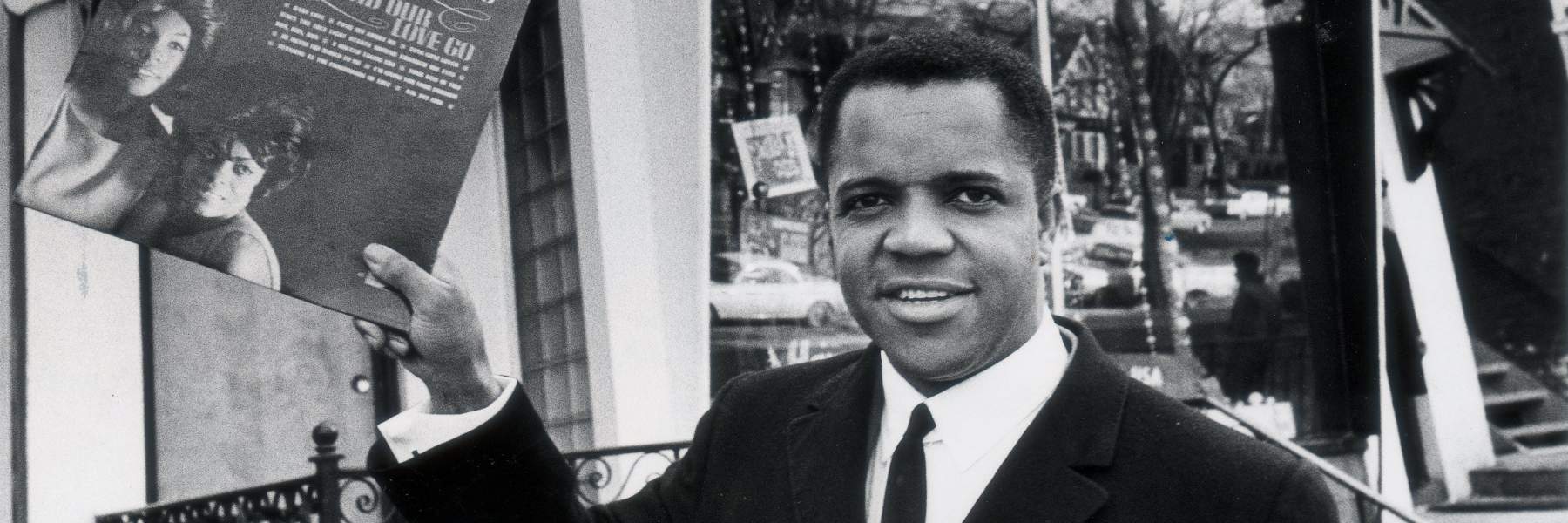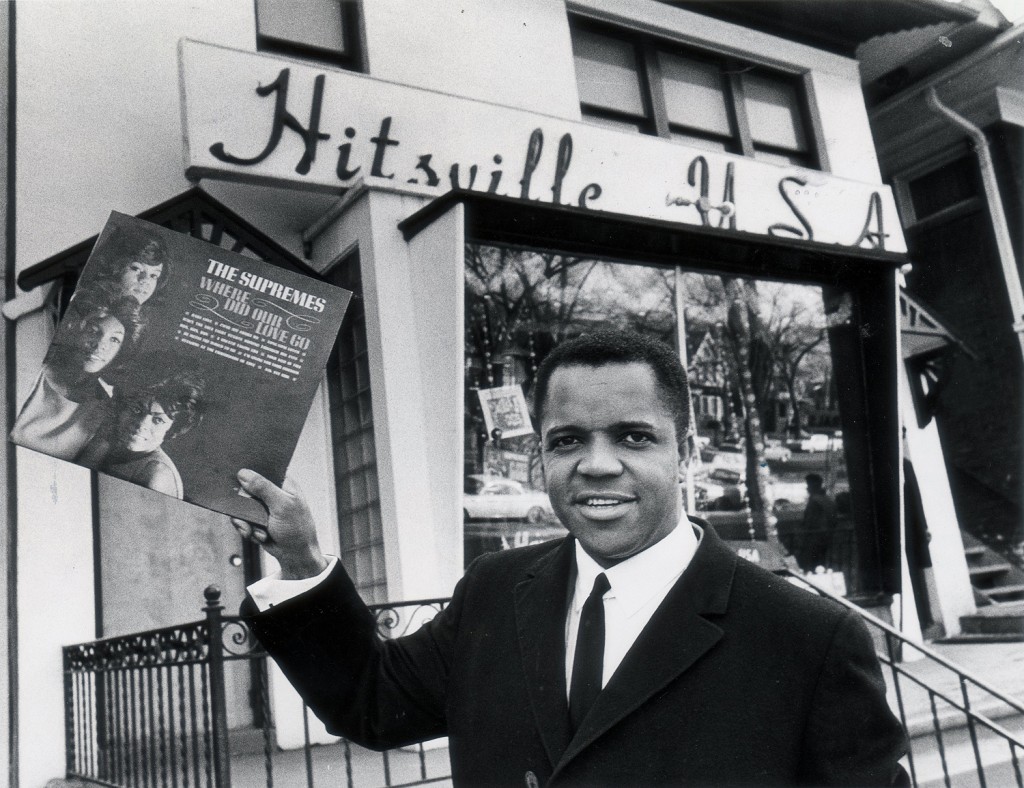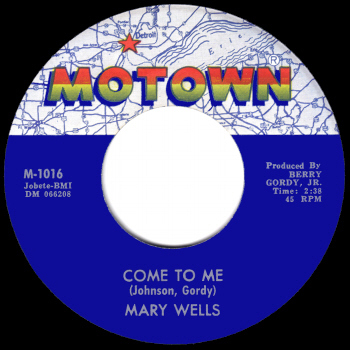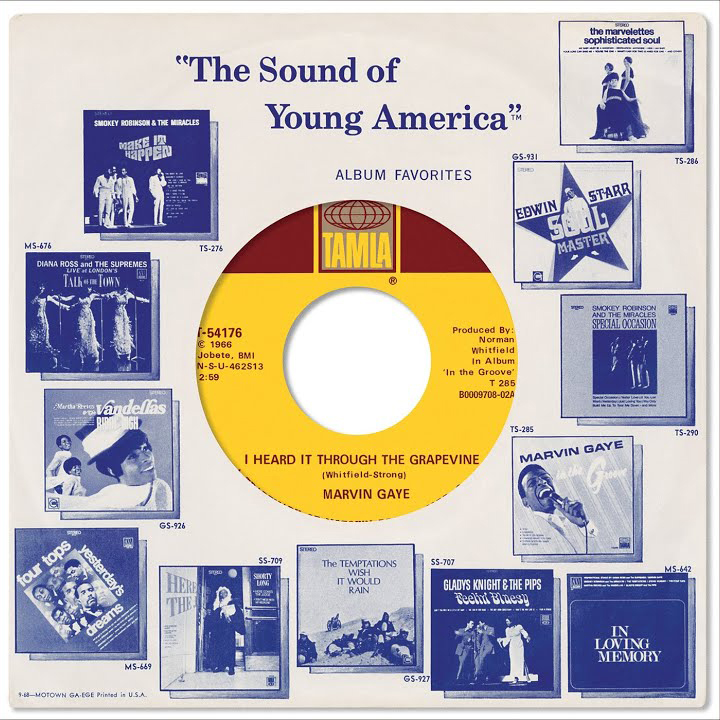His vision was to create a music hit-factory
based upon the highway of car factories that fuelled Detroit
With arms deep in the factory-line of Ford Auto-Company, Berry Gordy’s mind would be slowly building up a back-catalogue of songs in rhythm to the clinks and clicks of the production line. He was not alone in this process of work; many blues singers and autoworkers held it was the hours on the assembly line that spurred their best music. The whirling machinery gave the beat, the hum of the conveyer belt gave the backing band. You can hear the heavy influence of the auto-barn on Detroit blues in Joe L. Carter’s Detroit, I Do Mind Dying; ‘Please, Mr. Foreman’ he sings, ‘Slow down your assembly line. No, I don’t mind workin', but I do mind dyin’.
The streamlined machinist that Ford churned out became the backbone of Berry Gordy’s idea to mass-produce hit records. Just as the cars started out a metal frame, pressed through conveyor belts to emerge a vehicle, he hoped to rig up the same system with artists instead of steel. In his mind, an unknown musician could walk onto the conveyer belt from the Detroit backstreets and emerge from his production line a star. With an 800 dollar loan from his family, Berry Gordy hence created the beginnings of what was to be both the first African-American owned label to reach international acclaim and the most successful independent record company in history.
Motown Records, a linguistic sandwich of ‘Motor-Town’, is a hat-tip to the aforementioned nickname Detroit picked up during its many booming decades as an auto-industry hub. With a career tangentially looping in and out of the music scene from a young age, Motown Records was by no means Gordy’s first venture into the music industry. Dropping out of high school to pursue a brief yet internationally-acclaimed career as a lightweight boxer, Berry Gordy quickly located the music scene within combat during his single year serving in the Korean War. Though he started out in field artillery, Gordy soon hung up his firearms to assume the role of driver, assistant, and personal organ-player to the local chaplain at religious frontline services.
This point deserves reiteration; lightweight-boxer Berry Gordy was now conscripted to touring on the church organ during the Korean war.
No doubt a startling interlude in his career, Gordy returned at the age of 23 to set up ‘3-D Record Mart’, a record store exclusively selling jazz and 3-D glasses. How those two niche products relate, Gordy never divulged.
At this time in Detroit, the auto-industry’s influence on the music scene was so burgeoning that a jazz-record store was one of the most economically unviable moves a musician could take. With the majority of clientele strictly requesting from Gordy Detroit-blues, and Gordy stubbornly responding with a catalogue of jazz, 3-D Record Mart safely went bankrupt after a few years. As Gordy reflected, those who ‘toiled in hot, dirty factories all week…wanted a beat to dance away the Blues to’, and bebop jazz was not that.
This intricate history all leads us, inch by inch, to an uprising of the Motown movement that is so wonderfully specific and contingent upon both the life of Berry Gordy and the cultural context of Detroit in the 50s. With the unfortunate crash of 3-D Record Mart, Gordy loaned another wad of cash from his family and re-invented his musical ideology with the smalltime studio, Hitsville. The garage renovated into Motown’s recording studio and the kitchen into a control room, Gordy began prowling local talent shows and amateur singing contests. With cosmic precision his first catch was a street-side performer who, having just failed an audition at Brunswick Records, was found clutching a handwritten notebook with the words ‘The Big 10’ scrawled across the cover. The Big 10, a DIY portfolio of 100 songs he had written in high school, was Smokey Robinson’s entire back-catalogue of undercover hits he had created while simultaneously pursuing electrical engineering and athletics. With this surefire ticket to fame the universes neatly collided; Smokey Robinson happens upon Gordy, Gordy happens upon Mary Johnson and the Miracles, and within the year Motown’s first record is put out from the unplanned collective of musicians. Though considering Gordy’s streetside auto-barn ideology, perhaps this happenstance pathway was exactly the way he had intended it to be.
Scouting talent from his crawls through nightclubs, bars, and the back-alleys of Detroit, within three years Berry Gordy had turned Hitsville into a 24-hour music factory showcasing the likes of Diana Ross, the Supremes, Martha Vandella, and the Four Tops. The Motown sound was, however, much more than just a musical melting-pot of gold. This record label was one of the first to challenge the music industry’s systemic segregation of African-American music to African-American radio and record-outlets. With Motown records flying out the door of every record shop in town, the sweet sound of blues, R&B and soul began to dissolve the racial barrier and became part of Gordy’s vision of ‘The Sound of Young America’, a tagline you can now find printed on the wax of almost every Motown record.
‘The Sound of Young America’ was not just the music of African-American musicians, it was Gordy’s visionary integration of America into genres that no longer needed to be segregated by radio stations, suburbs, class, socioeconomic status or race. Motown was for everyone.
Of course, no story ever ends this peachy. To tune in to the last half of this saga, turn your ears to Sound and Vision on Tuesday at 8am for a discussion of the later years of Motown Records based off a trio of documentaries made about the era; 'Hitsville, The Making of Motown’ (2019), ‘Standing in the Shadows of Motown’ (2002), and ‘Motown 40: The Music is Forever' (1998).
-Xan Coppinger
Xan Coppinger hosts the Sound and Vision segment on The Breakfast Spread each Tuesday at 8am, as well as co-hosting Solaris every Sunday at midnight alongside Clancy Balen. Keep your eye on pbsfm.org.au for more Sound and Vision feature articles around the first Monday of every month.




